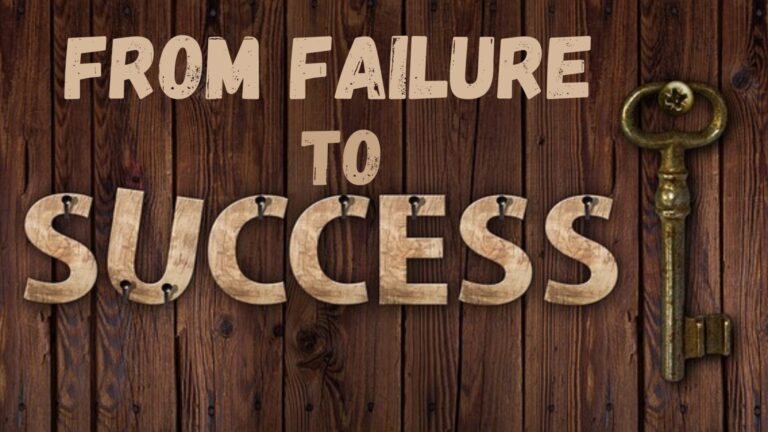Introduction:-
Self-Discipline: The Secret Weapon for Certain Victory

Amid the constant barrage of distractions and dwindling motivation, self-discipline emerges as the unwavering beacon that guides individuals toward triumph. This vital quality serves as the key to unlocking one’s true potential, whether the aspiration is to attain personal goals, ascend the career ladder, or refine everyday habits.
Understanding Self-Discipline
Self-discipline is the ability to control one’s emotions, behaviors, and desires to reach a higher goal, even when faced with external demands. It requires mental strength to remain focused, persevere through challenges, and resist temptations that could lead to deviating from the intended path.
Why Self-Discipline Matters
- Consistency Breeds Success: While success may seem elusive, it is the cumulative effect of persistent, consistent effort over time. Self-discipline acts as the compass guiding your path, ensuring your progress even in challenging times.
- Overcoming Procrastination’s Grip: Procrastination, a stealthy adversary, often stands between us and our goals. Self-discipline empowers you to resist the temptation to delay, pushing you to take proactive, purposeful steps toward your ambitions.
- Habits, the Cornerstone: Positive habits are the pillars of success. Through self-discipline, you can cultivate and sustain habits that contribute to your overall well-being and productivity, laying the foundation for a life of fulfillment.
- Resilience, the Key to Bouncing Back: Life is an unpredictable journey filled with setbacks. Self-discipline fortifies you with the resilience to emerge stronger from failures, propelling you forward with determination and fortitude.
Mastering the Art of Self-Discipline:
- Set Measurable Goals: Clearly define what you want to achieve in specific, measurable terms. Having well-defined goals provides a sense of direction and motivation.
- Break Down Goals: Divide your goals into smaller, manageable steps. This makes them seem less daunting and easier to tackle, reducing overwhelm and fostering a sense of progress.
- Minimize Distractions: Identify and eliminate distractions from your environment. Turn off notifications, create a dedicated and clutter-free workspace, and establish boundaries with others to minimize disruptions.
- Build Self-Discipline: Start by practicing self-control in everyday situations. Consistently exercising self-control strengthens your discipline muscle over time, making it easier to resist temptations and stay focused.
- Cultivate Accountability: Share your goals with a trusted friend or mentor, or keep a progress journal. Having someone to hold you accountable increases your commitment and motivates you to stay on track.
- Celebrate Achievements: Acknowledge and celebrate your successes, both big and small. Positive reinforcement strengthens your discipline and makes the journey more enjoyable.
Instances of Self-Discipline in Practice:
- Top athletes like Serena Williams and Michael Jordan exemplify self-discipline.
- Successful entrepreneurs like Elon Musk and Oprah Winfrey have achieved greatness through relentless self-discipline.
- Students who excel academically often do so through disciplined study habits.
The Long-Term Benefits of Self-Discipline
- Improved Focus: Self-discipline helps you stay focused on what truly matters, sharpening your concentration and minimizing distractions.
- Increased Productivity: Maintaining discipline allows you to accomplish more in less time, maximizing your overall productivity and efficiency.
- Enhanced Self-Esteem: Achieving your goals through self-discipline boosts your self-confidence and self-worth, leading to a positive sense of accomplishment.
- Healthier Lifestyle: Self-discipline often extends beyond personal goals to encompass other areas of life, such as diet and exercise, promoting better physical and mental health.
What are the prevalent challenges to self-discipline and effective strategies for overcoming them?
Self-discipline is a crucial skill for achieving success and maintaining productivity, but many people struggle with it due to various obstacles. Here are some common barriers to self-discipline and strategies to overcome them:
1. Procrastination
Challenge:
Procrastination, the inclination to postpone tasks in favor of immediate gratification at the expense of long-term goals, can be a significant obstacle.
Strategies:
- Divide and Conquer: Breaking large tasks into smaller, more manageable steps makes them less overwhelming and easier to tackle.
- Set Clear Deadlines: Establishing specific deadlines creates a sense of urgency, motivating you to start and complete tasks on time.
- Utilize the Pomodoro Technique: This technique involves alternating 25 minutes of focused work with 5-minute breaks to maintain focus and prevent burnout.
2. Lack of Clear Goals
Challenge: The absence of well-defined and specific goals can lead to a sense of disorientation and a lack of motivation.
Solution:
- SMART Goals: Establishing SMART (Specific, Measurable, Achievable, Relevant, and Time-bound) goals is crucial.
- Written Goals: Documenting your goals serves to reinforce your commitment and solidify your intentions.
- Regular Reviews: Regularly evaluate your progress and make necessary adjustments to your goals, ensuring that they remain aligned with your aspirations and circumstances.
3. Distractions
Challenge: In the digital realm of today, distractions stemming from social media, emails, and sundry sources can derail one’s focus and productivity.
Solutions:
- Designated Workspace: Craft a dedicated workspace devoid of distracting devices to foster a conducive environment for productivity.
- Specific Times: Establish designated periods throughout the day for checking emails and engaging with social media, minimizing incessant interruptions.
Productivity Tools: Utilize productivity tools like Focus@Will (an app) or website blockers such as Freedom to curb distractions and enhance concentration.
4. Lack of Motivation
Challenge: Maintaining self-discipline can be hampered by fluctuating motivation, leading to inconsistent efforts.
Strategies:
- Uncover Your Purpose: Discover the profound reasons behind your objectives to sustain motivation.Envision Achievements: Regularly visualize the positive outcomes and benefits of attaining your goals.
Celebrate Progress: Establish a system of rewards to acknowledge and celebrate the completion of minor milestones, which can serve as a motivational boost.
5. Fatigue and Burnout
Challenge: Physical and mental exhaustion can pose a significant barrier to maintaining self-discipline.
Strategies to Overcome:
- Prioritize Rest and Recuperation:
- Ensure sufficient sleep
- Incorporate regular breaks into your routine
- Regular Exercise:
- Engage in physical activity to enhance energy
- Improve mental clarity
- Mindfulness Practices:
- Utilize meditation and deep breathing techniques
- Manage stress and prevent burnout
6. Negative Self-Talk
Challenge:
Negative self-talk can diminish confidence and resolve, hindering the ability to maintain discipline.
Solutions:
- Utilize Positive Affirmations:
Replace negative thoughts with positive affirmations to enhance self-confidence. - Embrace Positivity in Your Surroundings:
Engage with supportive individuals and environments that promote positive thinking. - Celebrate Progress:
Acknowledge and celebrate progress rather than obsessing over imperfections.
7. Lack of Accountability
Challenge: Without accountability, it’s easy to succumb to distractions and temptations.
Strategies:
- Accountability Partner:
- Partner with someone who will hold you accountable and offer support.
- Accountability Tools:
- Utilize apps like Habitica or StickK to track your progress and stay accountable.
- Regular Check-Ins:
- Schedule regular check-ins with your accountability partner or use a journal to monitor your progress.
8. Fear of Failure
Obstacle: Fear of failing can hinder action and impede self-discipline.
Solutions:
- Reframe Failures:
- View failures as valuable learning experiences,
- Turn them into stepping stones for future success.
- Break Goals into Steps:
- Set incremental, attainable goals.
- Celebrate each accomplishment.
- Recall Your Achievements:
- Reflect on past successes.
- Boost confidence and reduce fear.
Self-discipline can be achieved by combining self-awareness, strategic planning, and consistent effort to address specific barriers.
How do successful people use self-discipline to stay ahead?
In the pursuit of success, self-discipline stands as a cornerstone trait for many accomplished individuals. It serves as a guiding force, helping them maintain focus, reach their objectives, and maintain a competitive edge in their respective domains. Let’s explore how successful people harness the power of self-discipline to stay at the forefront:

1. Goal Setting:
- Successful individuals set clear, specific, and achievable goals.
- They break down long-term objectives into actionable short-term steps.
- Elon Musk, for instance, sets ambitious targets for SpaceX and Tesla, breaking them down into smaller projects with specific milestones.
2. Task Prioritization:
- Prioritizing tasks based on importance and urgency is crucial.
- High-impact activities aligned with goals take precedence.
- Warren Buffett’s famous “20-Slot Rule” focuses on critical tasks with the highest returns.
3. Routine Maintenance:
- Establishing a consistent daily routine optimizes time management and productivity.
- Tim Cook, Apple’s CEO, starts his day at 4:30 AM with email, exercise, and then work.
4. Effective Time Management:
- Time management techniques are employed to maximize productivity.
- Calendars, to-do lists, and time-blocking are commonly used.
- Bill Gates schedules his day in 5-minute increments to ensure efficient use of time.
5. Minimizing Distractions:
- Successful individuals prioritize distraction-free environments to enhance their focus.
- J.K. Rowling, for example, seeks secluded areas to fully concentrate during her writing process.
6. Prioritizing Self-Care:
- Successful people recognize the importance of physical and mental well-being.
- Strategy: Incorporate regular exercise, healthy eating habits, and adequate rest into daily routines.
- Example: Oprah Winfrey emphasizes the significance of meditation, exercise, and a balanced diet to maintain her energy and concentration.
7. Embracing Continuous Learning and Improvement:
- Successful individuals dedicate time to learning and self-improvement.
- Strategy: Constantly seek new knowledge and skills.
- Example: Mark Zuckerberg commits to learning something new each year, such as learning Mandarin or reading two books per month.
8. Developing Resilience:
- Successful people cultivate resilience to overcome setbacks and failures.
- Strategy: View challenges as opportunities for growth and improvement.
- Example: Michael Jordan, regarded as one of the greatest basketball players, used early career failures as motivation to excel.
9. Cultivating Beneficial Habits:
- Successful individuals develop habits that support their goals.
- Strategy: Incorporate regular exercise, reading, and networking into daily routines.
- Example: Benjamin Franklin’s daily schedule included dedicated time for reading, reflection, and planning, contributing to his achievements.
10. Seeking Accountability:
- Successful people take responsibility for their actions and seek external accountability.
- Strategy: Hold themselves accountable and seek accountability from mentors, coaches, or peers.
- Example: Richard Branson often shares his goals and progress with his team and the public, fostering a sense of accountability.
Success requires self-discipline. Successful people set goals, prioritize, manage time, minimize distractions, and practice self-care. This leads to a disciplined, productive, and fulfilling life.
Conclusion
Self-discipline turns aspirations into reality. It leads to success and makes victory certain. Embrace self-discipline for a fulfilling future.








